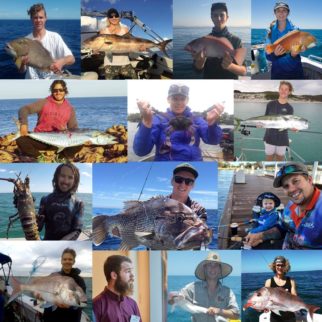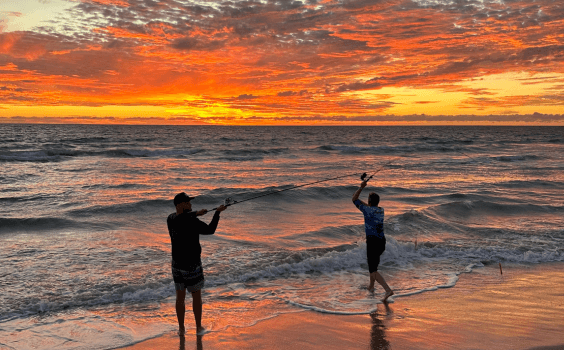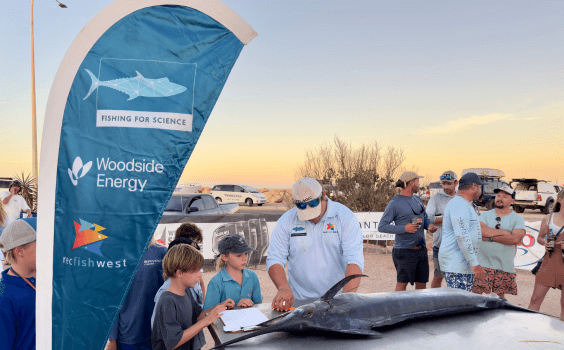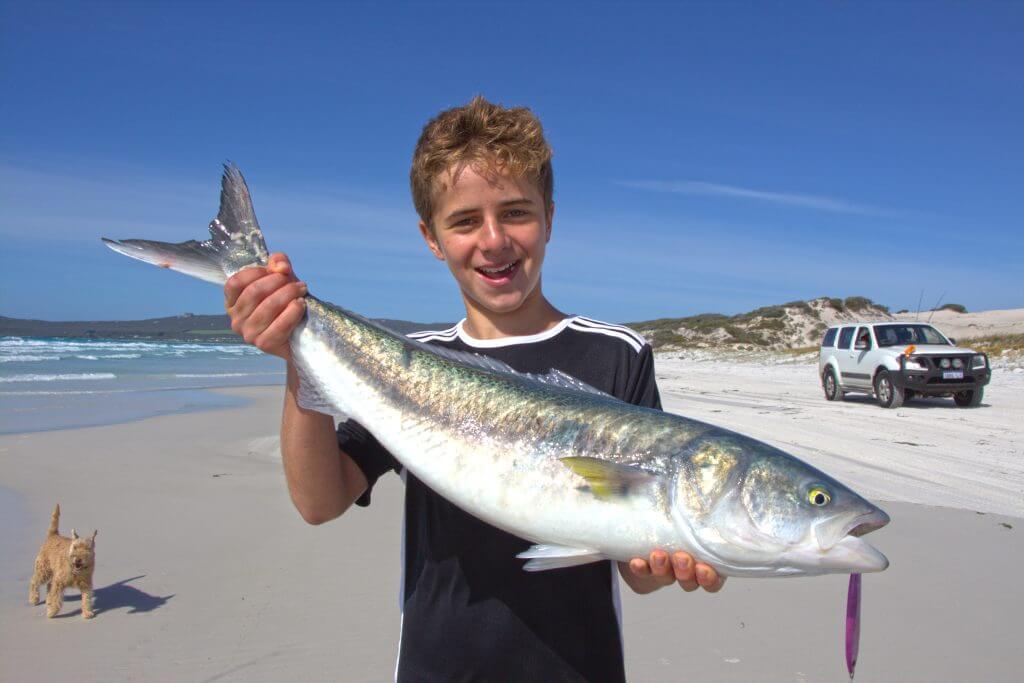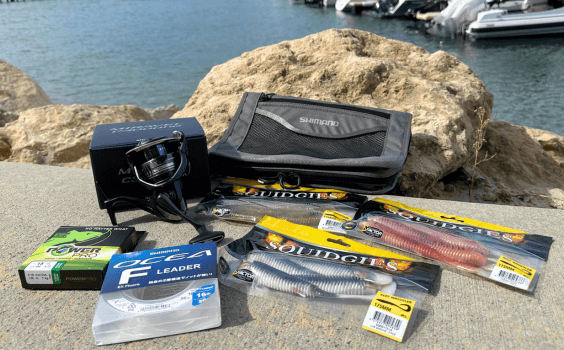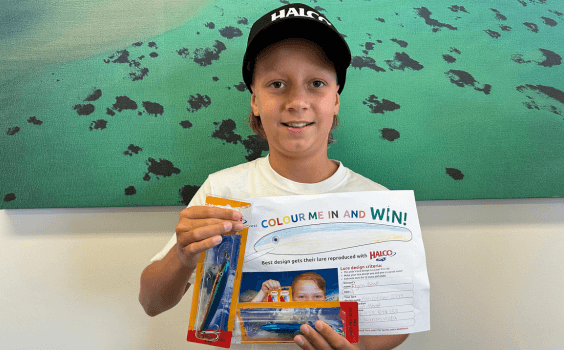In early July, 14 quality candidates were selected for Recfishwest’s 2018 Next Wave Program, joining us for five days of fast paced learning as part of their 2 year term commitment to make fishing better in Western Australia.
Team member Aaron Moses, a marine science graduate who is passionate about sustainable fishing practices and fisheries management, speaks of his experience below.

Day one – Why we were here
The passion for recreational fishing become immediately apparent amongst us we all gathered in front of Recfishwest on 12 June.
We were greeted by Recfishwest CEO Andrew Rowland and Fishing Development Officer Matt Gillett along with our guest speakers for the program. The ferry ride over to Rottnest Island provided a great opportunity for us to get to know each other and we were eager to get started, learn more about our diverse fisheries and what it takes to manage them efficiently and effectively.
After arriving on the island we quickly settled in and made a start to the course with a quick run-down on the coming days, along with an activity to find out why each one of us applied and wanted to get out of the program.
It’s been a dream for me to one day work alongside Department of Fisheries in managing our fish stocks. From what I had heard from previous participants, this would be a perfect opportunity to listen to and learn from those who have been involved in the industry and in the decision making processes, and hopefully pave the way for a career in fisheries management.
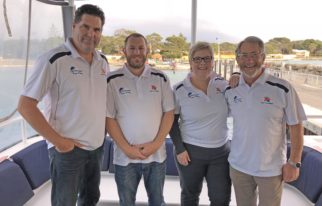
Day two – Jam packed agenda
An early start for us on day two with a jam packed agenda of speakers from the Recreational, Commercial, Government, Community and Representative Sector, left us feeling enthused and excited for the days ahead as we unpacked various elements of Fisheries Management in Western Australia.
Ian Cartwright was the very informative lead speaker on the first day giving participants an introduction to fisheries management including the basic principles and methods, values, drivers, information about resource sharing, sustainable yields, successes, failures and a discussion around the issues facing fisheries management.
The day continued with various speakers as we delved into more detail and information from each sector, whilst learning how we could play our part in ensuring high quality recreational fishing experiences are maintained.
Our day concluded with a workshop by Jill Briggs on leadership, decision making and communication and the qualities it takes to be a good leader, with each of us highlighting our strengths and recognising the skills we would aim to develop over the term of the program.
The content from these presentations and activities were crucial to us when preparing and presenting our case studies over the next few days.
Day three – Compliance vessel and intro to a world class fishery
Day three was to be another busy day as we split into groups to each have our turn on a Fisheries Compliance vessel, while the others were to get started on their case study. While on the vessel we obtained a great understanding of the day to day operations of Fisheries Compliance Officers, what they look for when on patrol and the challenges they face when conducting their duties.
Once arriving back on land our group were handed our case study which involved two very important fisheries in Western Australia – the Shark Bay Inner Gulf Pink Snapper and the Australian Salmon. We were to manage and promote just one of these fisheries making it a World Class Fishing Experience, putting much thought into what attributes would make a fishery World Class. The other group would do the same for the alternate fishery.
This was our opportunity to apply our learnings into a real life context, building upon the interpersonal, leadership and communication skills we had made a commitment to develop, before presenting it to everyone on the last day.

To break up the case study half way through the afternoon, Dr Emily Fisher offered an insightful perspective into the importance of Fisheries Research. This was a key part of the puzzle to ensure our case study was on the right track as we considered the direct influence and role that research has in regards to management of fish stocks.
Day four – Finalising case studies
Day four was almost entirely focused around working on and finalising our case studies, with a lot to consider. This included stakeholder engagement, potential modifications to current management or the implementation of new rules, doing so in a way to create a unique and enjoyable experience for anglers of all levels.
Presentation night
The final night arrived and we worked hard to ensure we had considered all avenues and we were promoting and managing our selected fisheries in the best way possible.
We wanted to ensure we were maximising the recreational fishing experience, considering the points of view of the local community, the indigenous community and bringing them along on the journey whilst not compromising the livelihoods of those who depend on the ocean to make a living.
Presenting the study was quite nerve wracking, but being up there with your group members who all share the same passion for fishing and were very supportive made the experience much easier.
Listening to the second group present their case study was a chance to see how we take different approaches to a task with some fantastic ideas put forward for discussion. The feedback we received from all the guest speakers was fantastic with many of them challenging our thought processes and decisions, putting us on the spot yet ensuring everything we had been learning over the past few days were being instilled.
That night was a great opportunity to reflect back on the past few days; for all that we were taught and learnt, including some personal insight and realisations too.
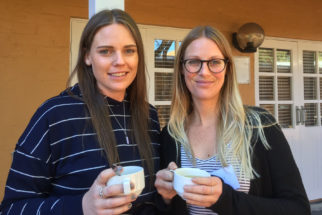
Day 5 – Changes in thinking
The first part of the program was coming to an end and as we parted ways at the jetty.
I personally felt extremely privileged to have been given the opportunity and be part of such an insightful course which not only challenges your way of thinking, but gives you a greater understanding of fisheries management and the hurdles it faces.
I’m looking forward to the next part of the program which will focus on the development of our leadership skills and communication skills further, and having the opportunity to volunteer for various events, and clinics along the way.
As someone who is passionate about recreational fishing and wanting to pursue a career in this field, I found this program to be the perfect kick start, allowing me to make important connections and I highly recommend this program to those who share the passion and determination to make fishing better in Western Australia.
What is the Next Wave Future Leaders Program?
The Next Wave Future Leaders Program runs every two years and aims to unearth young talent providing entry level training in fisheries management, advocacy, and leadership and communication skills. It provides an opportunity for committed participants to build knowledge through exposure to fisheries management and leadership experts, contribute to fisheries decision making, and undertake both professional and personal development.
Previous participants in this program have gone onto achieve great things in fisheries management. Many now occupy roles in the recreational fishing sector and many future opportunities exist for the right people who are committed to making a difference. View some examples here.
The application process involves participants answering multiple questions regarding their values, drive, and motivation for joining the program including details of their previous experience. The next step is the interview process before the news is delivered over the coming weeks.
Once participants are recruited, they undertake extensive fast paced learning modules over a two year term and commit themselves to various events, boat shows and/or fishing clinics on a volunteer basis.
Participants learn the necessary skills to contribute to decision making processes with key stakeholders, enhance the recreational fishing experience and ensure fish stocks are highly abundant, manageable and measurable whilst also taking into consideration the points of view of all sectors and relevant stakeholders.
When is the next intake?
The next intake is May 2020. Stay up to date on the website or Recfishwest Facebook Page.
